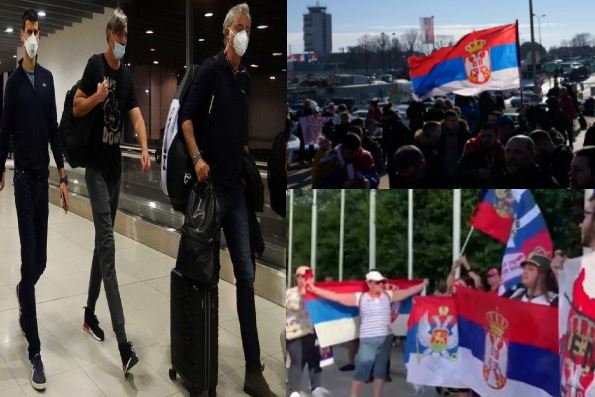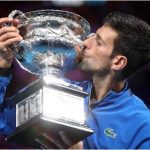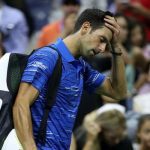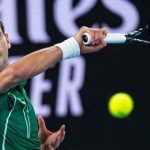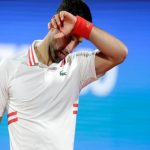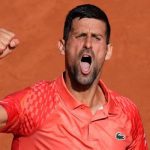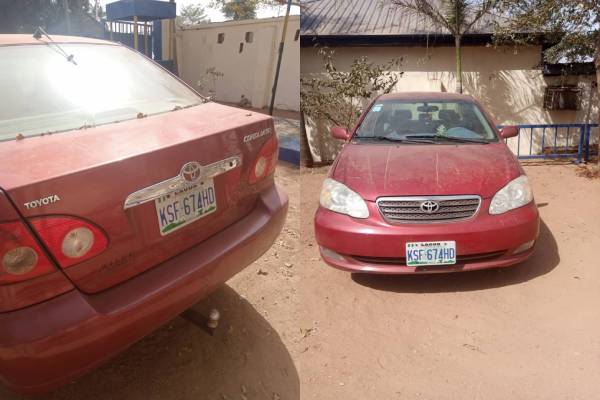Novak Djokovic arrived in Serbia on Monday to a hero’s welcome after Australia deported him for being unvaccinated against COVID-19, putting his quest for a record 21st Grand Slam championship in jeopardy.
On his arrival at Belgrade airport, Serbian supporters waved national flags and applauded him, despite the fact that most Australians wanted him to go.
The 34-year-old “King of Melbourne” had won nine previous Australia Opens, was the top men’s seed for the tournament that started on Monday, and is tied with Rafa Nadal and Roger Federer for the most victories with 20.
But instead of beginning his title defence as scheduled at Melbourne Park, he flew to Belgrade via Dubai after being twice detained in a hotel with asylum-seekers and then unceremoniously booted out by Australian immigration.
The Australian government’s decision was in line with public sentiment, but officials have been chastised for failing to resolve the matter before he arrived.
Under Australian law, he cannot return for three years unless the immigration minister accepts there are compelling or compassionate reasons. Prime Minister Scott Morrison hinted there may be a way to let him in next year.
As things stand, Djokovic will be unable to compete in the French Open in May due to a new vaccine pass requirement.
“This will apply to everyone who is a spectator or a professional sportsperson,” the ministry said in a statement, adding, however, that the pandemic situation could change by then. “We’ll see, but clearly there’s no exemption.”
Novak Djokovic arrived in Serbia on Monday to a hero’s welcome after Australia deported him for being unvaccinated against COVID-19, putting his quest for a record 21st Grand Slam championship in jeopardy.
On his arrival at Belgrade airport, Serbian supporters waved national flags and applauded him, despite the fact that most Australians wanted him to go.
The 34-year-old “King of Melbourne” had won nine previous Australia Opens, was the top men’s seed for the tournament that started on Monday, and is tied with Rafa Nadal and Roger Federer for the most victories with 20.
But instead of beginning his title defence as scheduled at Melbourne Park, he flew to Belgrade via Dubai after being twice detained in a hotel with asylum-seekers and then unceremoniously booted out by Australian immigration.
The Australian government’s decision was in line with public sentiment, but officials have been chastised for failing to resolve the matter before he arrived.
Under Australian law, he cannot return for three years unless the immigration minister accepts there are compelling or compassionate reasons. Prime Minister Scott Morrison hinted there may be a way to let him in next year.
As things stand, Djokovic will be unable to compete in the French Open in May due to a new vaccine pass requirement.
“This will apply to everyone who is a spectator or a professional sportsperson,” the ministry said in a statement, adding, however, that the pandemic situation could change by then. “We’ll see, but clearly there’s no exemption.”
Novak Djokovic arrived in Serbia on Monday to a hero’s welcome after Australia deported him for being unvaccinated against COVID-19, putting his quest for a record 21st Grand Slam championship in jeopardy.
On his arrival at Belgrade airport, Serbian supporters waved national flags and applauded him, despite the fact that most Australians wanted him to go.
The 34-year-old “King of Melbourne” had won nine previous Australia Opens, was the top men’s seed for the tournament that started on Monday, and is tied with Rafa Nadal and Roger Federer for the most victories with 20.
But instead of beginning his title defence as scheduled at Melbourne Park, he flew to Belgrade via Dubai after being twice detained in a hotel with asylum-seekers and then unceremoniously booted out by Australian immigration.
The Australian government’s decision was in line with public sentiment, but officials have been chastised for failing to resolve the matter before he arrived.
Under Australian law, he cannot return for three years unless the immigration minister accepts there are compelling or compassionate reasons. Prime Minister Scott Morrison hinted there may be a way to let him in next year.
As things stand, Djokovic will be unable to compete in the French Open in May due to a new vaccine pass requirement.
“This will apply to everyone who is a spectator or a professional sportsperson,” the ministry said in a statement, adding, however, that the pandemic situation could change by then. “We’ll see, but clearly there’s no exemption.”
Novak Djokovic arrived in Serbia on Monday to a hero’s welcome after Australia deported him for being unvaccinated against COVID-19, putting his quest for a record 21st Grand Slam championship in jeopardy.
On his arrival at Belgrade airport, Serbian supporters waved national flags and applauded him, despite the fact that most Australians wanted him to go.
The 34-year-old “King of Melbourne” had won nine previous Australia Opens, was the top men’s seed for the tournament that started on Monday, and is tied with Rafa Nadal and Roger Federer for the most victories with 20.
But instead of beginning his title defence as scheduled at Melbourne Park, he flew to Belgrade via Dubai after being twice detained in a hotel with asylum-seekers and then unceremoniously booted out by Australian immigration.
The Australian government’s decision was in line with public sentiment, but officials have been chastised for failing to resolve the matter before he arrived.
Under Australian law, he cannot return for three years unless the immigration minister accepts there are compelling or compassionate reasons. Prime Minister Scott Morrison hinted there may be a way to let him in next year.
As things stand, Djokovic will be unable to compete in the French Open in May due to a new vaccine pass requirement.
“This will apply to everyone who is a spectator or a professional sportsperson,” the ministry said in a statement, adding, however, that the pandemic situation could change by then. “We’ll see, but clearly there’s no exemption.”
Novak Djokovic arrived in Serbia on Monday to a hero’s welcome after Australia deported him for being unvaccinated against COVID-19, putting his quest for a record 21st Grand Slam championship in jeopardy.
On his arrival at Belgrade airport, Serbian supporters waved national flags and applauded him, despite the fact that most Australians wanted him to go.
The 34-year-old “King of Melbourne” had won nine previous Australia Opens, was the top men’s seed for the tournament that started on Monday, and is tied with Rafa Nadal and Roger Federer for the most victories with 20.
But instead of beginning his title defence as scheduled at Melbourne Park, he flew to Belgrade via Dubai after being twice detained in a hotel with asylum-seekers and then unceremoniously booted out by Australian immigration.
The Australian government’s decision was in line with public sentiment, but officials have been chastised for failing to resolve the matter before he arrived.
Under Australian law, he cannot return for three years unless the immigration minister accepts there are compelling or compassionate reasons. Prime Minister Scott Morrison hinted there may be a way to let him in next year.
As things stand, Djokovic will be unable to compete in the French Open in May due to a new vaccine pass requirement.
“This will apply to everyone who is a spectator or a professional sportsperson,” the ministry said in a statement, adding, however, that the pandemic situation could change by then. “We’ll see, but clearly there’s no exemption.”
Novak Djokovic arrived in Serbia on Monday to a hero’s welcome after Australia deported him for being unvaccinated against COVID-19, putting his quest for a record 21st Grand Slam championship in jeopardy.
On his arrival at Belgrade airport, Serbian supporters waved national flags and applauded him, despite the fact that most Australians wanted him to go.
The 34-year-old “King of Melbourne” had won nine previous Australia Opens, was the top men’s seed for the tournament that started on Monday, and is tied with Rafa Nadal and Roger Federer for the most victories with 20.
But instead of beginning his title defence as scheduled at Melbourne Park, he flew to Belgrade via Dubai after being twice detained in a hotel with asylum-seekers and then unceremoniously booted out by Australian immigration.
The Australian government’s decision was in line with public sentiment, but officials have been chastised for failing to resolve the matter before he arrived.
Under Australian law, he cannot return for three years unless the immigration minister accepts there are compelling or compassionate reasons. Prime Minister Scott Morrison hinted there may be a way to let him in next year.
As things stand, Djokovic will be unable to compete in the French Open in May due to a new vaccine pass requirement.
“This will apply to everyone who is a spectator or a professional sportsperson,” the ministry said in a statement, adding, however, that the pandemic situation could change by then. “We’ll see, but clearly there’s no exemption.”
Novak Djokovic arrived in Serbia on Monday to a hero’s welcome after Australia deported him for being unvaccinated against COVID-19, putting his quest for a record 21st Grand Slam championship in jeopardy.
On his arrival at Belgrade airport, Serbian supporters waved national flags and applauded him, despite the fact that most Australians wanted him to go.
The 34-year-old “King of Melbourne” had won nine previous Australia Opens, was the top men’s seed for the tournament that started on Monday, and is tied with Rafa Nadal and Roger Federer for the most victories with 20.
But instead of beginning his title defence as scheduled at Melbourne Park, he flew to Belgrade via Dubai after being twice detained in a hotel with asylum-seekers and then unceremoniously booted out by Australian immigration.
The Australian government’s decision was in line with public sentiment, but officials have been chastised for failing to resolve the matter before he arrived.
Under Australian law, he cannot return for three years unless the immigration minister accepts there are compelling or compassionate reasons. Prime Minister Scott Morrison hinted there may be a way to let him in next year.
As things stand, Djokovic will be unable to compete in the French Open in May due to a new vaccine pass requirement.
“This will apply to everyone who is a spectator or a professional sportsperson,” the ministry said in a statement, adding, however, that the pandemic situation could change by then. “We’ll see, but clearly there’s no exemption.”
Novak Djokovic arrived in Serbia on Monday to a hero’s welcome after Australia deported him for being unvaccinated against COVID-19, putting his quest for a record 21st Grand Slam championship in jeopardy.
On his arrival at Belgrade airport, Serbian supporters waved national flags and applauded him, despite the fact that most Australians wanted him to go.
The 34-year-old “King of Melbourne” had won nine previous Australia Opens, was the top men’s seed for the tournament that started on Monday, and is tied with Rafa Nadal and Roger Federer for the most victories with 20.
But instead of beginning his title defence as scheduled at Melbourne Park, he flew to Belgrade via Dubai after being twice detained in a hotel with asylum-seekers and then unceremoniously booted out by Australian immigration.
The Australian government’s decision was in line with public sentiment, but officials have been chastised for failing to resolve the matter before he arrived.
Under Australian law, he cannot return for three years unless the immigration minister accepts there are compelling or compassionate reasons. Prime Minister Scott Morrison hinted there may be a way to let him in next year.
As things stand, Djokovic will be unable to compete in the French Open in May due to a new vaccine pass requirement.
“This will apply to everyone who is a spectator or a professional sportsperson,” the ministry said in a statement, adding, however, that the pandemic situation could change by then. “We’ll see, but clearly there’s no exemption.”

